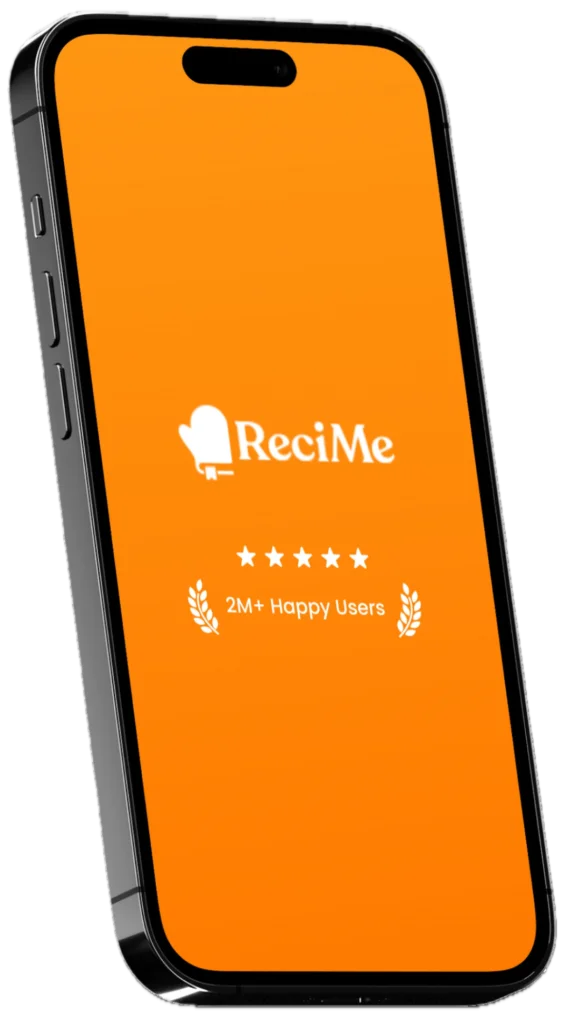Tracking your food intake is one of the easiest ways to stay mindful of what you’re eating, but it doesn’t have to be complicated or expensive. There are plenty of great free food tracker apps out there that can help you stay on track with your nutrition, whether you’re trying to lose weight, eat healthier, or just gain a better understanding of your eating habits. In this article, we’ll explore some of the best free apps available, so you can find the one that fits your needs and lifestyle. Let’s dive in!

1. MyFitnessPal
MyFitnessPal is a widely used food tracking app designed to help people monitor their daily calorie intake and nutritional habits. It offers a large database with over 18 million food items, including options from restaurants and supermarkets, which users can log manually or by scanning barcodes. The app also tracks exercise and syncs with fitness devices like Fitbit, Apple Watch, and Garmin, providing a way to see how activity impacts calorie needs. Its free version includes basic tracking features, while a premium subscription unlocks more detailed nutrient analysis and customization options.
The app allows users to set personal goals, whether that’s losing weight, maintaining it, or gaining muscle, and it provides a breakdown of macronutrients like carbs, fats, and proteins consumed throughout the day. Users can save their own recipes or frequent meals for quicker logging, and there’s a community feature where people can connect for support or ideas. While the database is extensive, some entries come from other users, so accuracy can vary, and checking details is a good habit to get into.
Key Highlights:
- Large food database with over 18 million items, covering a wide range of cuisines and brands.
- Barcode scanner for quick logging of packaged foods.
- Tracks calories, macronutrients, and some micronutrients like fiber and sodium.
- Syncs with fitness trackers to log exercise and adjust calorie counts.
- Free version available, with a premium option for extra features like ad-free use and fasting tracking.
Who It’s For:
- People who want a straightforward way to track calories and basic nutrients without much fuss.
- Anyone who eats out often, thanks to its restaurant menu options.
- Fitness enthusiasts who use wearables and want to combine food and activity tracking.
- Those who enjoy a community aspect to stay motivated with their goals.
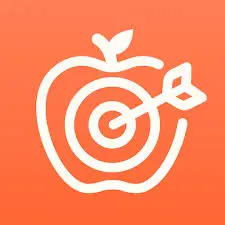
2. Cronometer
Cronometer is a nutrition tracking app focused on providing detailed insights into daily food intake, emphasizing both macronutrients and micronutrients. It features a database of over 1.2 million verified foods, allowing users to log meals through manual entry, barcode scanning, or by creating custom recipes. The app integrates with fitness devices like Fitbit, Garmin, and Oura, tracking exercise and biometric data such as weight, sleep, and mood. Its free version offers robust tracking capabilities, while the paid Gold version adds features like fasting timers and ad-free use.
The app stands out for its precision, with all food entries reviewed by a curation team to ensure accuracy, unlike some apps that rely heavily on user-submitted data. Users can monitor up to 84 nutrients, including vitamins and minerals, making it a go-to for those who want a deeper understanding of their diet. It also supports specific eating plans like keto or vegan by allowing customizable nutrient targets, though its interface can feel dense for beginners due to the wealth of data presented.
Key Highlights:
- Tracks over 84 nutrients, including calories, macros, and micronutrients like magnesium and vitamin D.
- Database of 1.2 million foods, verified for accuracy by a dedicated team.
- Barcode scanning and custom recipe creation for easy logging.
- Syncs with fitness trackers to monitor exercise and biometrics.
- Free version includes most core features.
Who It’s For:
- People who want detailed nutritional breakdowns beyond just calories.
- Those following specific diets, like keto or vegan, needing precise nutrient tracking.
- Fitness buffs who use wearables and want a single app for diet and activity.
- Anyone prioritizing accuracy in food data over a simpler, less detailed interface.

3. Calorie Counter by Lose It!
Calorie Counter by Lose It! is a food tracking app that helps users keep tabs on their daily calorie intake with a straightforward and user-friendly design. It features a database of over 50 million food items, including options from grocery stores and popular restaurant chains, which can be logged manually or via barcode scanning. The app also tracks exercise, syncing with devices like Apple Watch and Fitbit to account for calories burned. Its free version provides basic calorie counting and weight tracking, while the premium version adds features like meal planning and macronutrient breakdowns.
Users can set weight loss goals based on a desired weekly loss rate, and the app calculates a daily calorie budget to match. It includes a visual progress tracker with graphs to show trends over time, plus a community feature for sharing tips and motivation. While the food database is extensive, some entries rely on user submissions, so double-checking nutritional info can be a smart move for accuracy.
Key Highlights:
- Database with over 50 million foods, covering packaged goods and restaurant meals.
- Barcode scanner for quick and easy food logging.
- Tracks calories and exercise, with integration for fitness devices.
- Free version offers core tracking tools.
- Visual graphs to monitor weight and calorie trends over time.
Who It’s For:
- People who want a simple, no-frills way to count calories and track weight.
- Those who eat a mix of home-cooked and restaurant meals, thanks to its broad food library.
- Fitness tracker users looking to combine diet and activity data in one place.
- Anyone who likes a visual way to see their progress without getting bogged down in details.

4. Lifesum
Lifesum is a food tracking app that combines calorie counting with a focus on healthy eating habits, offering a clean and colorful interface. It includes a database of millions of foods, from supermarket staples to restaurant dishes, which users can log manually or by scanning barcodes. The app also tracks water intake and exercise, with options to connect to devices like Google Fit and Apple Health for a broader picture of daily activity. The free version covers basic tracking, while the premium plan unlocks detailed meal plans and recipes tailored to specific diets.
The app provides personalized feedback based on logged meals, suggesting tweaks like adding more protein or fiber, and supports various eating styles such as keto, intermittent fasting, or vegan. Users can follow guided plans for goals like weight loss or muscle gain, though some features – like advanced nutrient breakdowns – require the paid version. The food database pulls from both verified sources and user input, so occasional inaccuracies might pop up.
Key Highlights:
- Tracks calories, water, and exercise, with a database covering millions of foods.
- Barcode scanning and meal logging for quick entries.
- Offers diet-specific plans like keto or vegan, with recipe suggestions.
- Syncs with fitness apps like Google Fit and Apple Health.
- Free version available.
Who It’s For:
- People who want a balance of calorie tracking and healthy eating tips.
- Those following specific diets and looking for tailored recipe ideas.
- Users who prefer a visually appealing app that’s easy to navigate.
- Anyone syncing with fitness apps and wanting a holistic view of their habits.
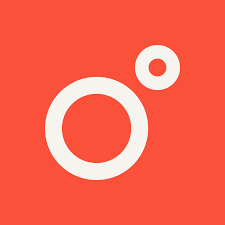
5. Noom
Noom is a food tracking app that blends calorie counting with a behavioral approach to encourage long-term habit changes. It uses a database of over 1 million foods, allowing users to log meals manually, via barcode scanning, or by snapping photos of their plates. Unlike traditional trackers, Noom incorporates daily lessons rooted in cognitive behavioral therapy, aiming to help users understand their eating patterns.
The app assigns foods to a color-coded system – green for nutrient-dense, low-calorie options; yellow for moderate choices; and orange for calorie-dense foods to limit – guiding users toward balanced decisions. It also offers personalized coaching and group support, though the coaching is virtual and not one-on-one in real-time. While it tracks calories and activity (syncing with devices like Fitbit), its focus leans more toward mindset shifts than detailed nutrient analysis, which might leave some users wanting more data depth.
Key Highlights:
- Tracks calories with a database of over 1 million foods, including restaurant items.
- Barcode scanning and photo logging for easy meal entry.
- Color-coded food system to guide eating choices.
- Daily lessons and virtual coaching for behavior change.
Who It’s For:
- People who want to address the psychology behind their eating habits.
- Those looking for a structured program with coaching and community support.
- Anyone prioritizing weight loss or maintenance over detailed nutrient tracking.
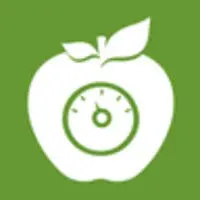
6. My Diet Diary
My Diet Diary is a straightforward food tracking app designed to help users monitor their calorie intake and weight loss progress. Developed by MedHelp, it features a database of over 100,000 foods, allowing manual entry or barcode scanning to log meals. The app also tracks exercise and water intake, with integration options for fitness devices like Fitbit. Its free version covers basic calorie counting, while a premium upgrade (pricing not widely specified) adds features like ad removal and enhanced reporting.
The app provides a simple interface with tools to set weight goals and view progress through charts, making it easy to see daily calorie budgets and trends over time. Users can join forums within the app to share experiences or seek advice, though the community aspect is less prominent than in some competitors. The food database includes user-submitted entries, so accuracy can vary, and it lacks the depth of micronutrient tracking found in more advanced apps.
Key Highlights:
- Database of over 100,000 foods for calorie tracking.
- Barcode scanner for quick logging of packaged items.
- Tracks exercise, water, and weight with basic progress charts.
- Community forums for peer support.
- Free version available, with a premium option for additional features.
Who It’s For:
- People who want a no-nonsense calorie counter with basic tracking.
- Those who value simplicity over detailed nutritional insights.
- Users who like connecting with others through forums.
- Anyone starting out with food tracking and not needing complex data.
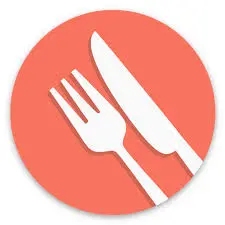
7. MyPlate
MyPlate, created by Livestrong, is a food tracking app that aligns with USDA dietary guidelines to promote balanced eating. It offers a database of over 2 million foods, enabling users to log meals manually or with a barcode scanner. The app tracks calories, macronutrients, and some micronutrients, and it syncs with devices like Apple Health and Fitbit to include exercise data.
Users can set personalized goals for weight loss, maintenance, or muscle gain, and the app provides a daily breakdown of nutrient intake with visual charts. It also includes a library of recipes and a community section for sharing tips, though its food database can feel limited for less common items, and customization options are somewhat rigid without the paid version. It’s built for those who want a structured, guideline-based approach to tracking.
Key Highlights:
- Tracks calories and nutrients with a 2 million-food database.
- Barcode scanner and recipe logging for meal tracking.
- Follow USDA guidelines for balanced diet recommendations.
- Syncs with fitness devices for exercise integration.
- Free version available/
Who It’s For:
- People who want a tracker rooted in government-backed nutrition standards.
- Those seeking a mix of food logging and recipe ideas.
- Users who use fitness devices and want combined tracking.
- Anyone looking for a clear, structured approach to healthy eating.
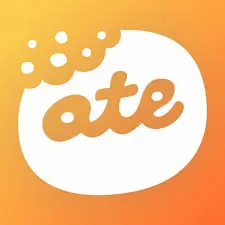
8. Ate Food Diary
Ate Food Diary takes a minimalist approach to food tracking, focusing on visual logging and mindful eating rather than detailed calorie counts. Users snap photos of their meals, which the app’s AI analyzes to estimate nutritional content, drawing from a database of common foods. It tracks eating habits over time, showing patterns like meal timing and frequency, with a free version offering basic features and a premium subscription for deeper insights.
The app encourages reflection by prompting users to note how meals make them feel, aiming to build awareness rather than enforce strict diets. It doesn’t sync with fitness devices or provide extensive nutrient breakdowns, keeping the experience simple and photo-driven. While the AI is handy, it may struggle with complex or homemade dishes, requiring manual adjustments for accuracy.
Key Highlights:
- Photo-based logging with AI to estimate nutrition.
- Tracks meal timing and frequency for habit analysis.
- Prompts for mindful eating reflections post-meal.
- No fitness device integration, focusing solely on food.
- Free version available.
Who It’s For:
- People who prefer visual tracking over manual data entry.
- Those interested in mindful eating and habit awareness.
- Users who want a simple tool without calorie obsession.
- Anyone comfortable with occasional AI estimation errors.
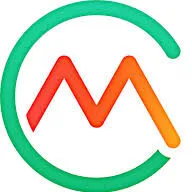
9. Carb Manager Keto Diet Tracker
Carb Manager Keto Diet Tracker is tailored for low-carb and ketogenic diets, offering a database of over 1 million foods to track net carbs, calories, and macronutrients. Users can log meals manually, scan barcodes, or input custom recipes, with the app syncing to devices like Fitbit and Apple Health for exercise data. The free version covers basic tracking, while a premium subscription adds features like meal planning and advanced keto reports.
The app calculates daily net carb limits based on user goals, providing charts to monitor ketosis progress and macronutrient ratios. It includes a library of keto-friendly recipes and a community forum for support, though its focus on low-carb eating means it’s less versatile for other diets. The database is robust but includes user-submitted entries, so some verification may be needed.
Key Highlights:
- Tracks net carbs, calories, and macros with a 1 million-food database.
- Barcode scanner and recipe logging for easy use.
- Tailored for keto with ketosis tracking and recipes.
- Syncs with fitness devices for activity monitoring.
- Free version available.
Who It’s For:
- People following keto or low-carb diets needing precise carb tracking.
- Those who want keto recipes and community support.
- Users with fitness devices looking to pair diet and exercise data.
- Anyone committed to a low-carb lifestyle over general tracking.
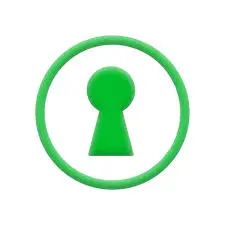
10. FatSecret
FatSecret is a food tracking app that keeps things simple, offering a database of millions of foods for logging calories and macronutrients. Users can enter meals manually, scan barcodes, or use photo recognition to track intake, with exercise logging also available. It integrates with apps like Google Fit and Apple Health, and its free version includes most features, while a premium option adds meal planning and custom reports.
The app provides a monthly summary of calorie intake and a diet calendar to spot trends, plus a community feature for sharing recipes and tips. Its interface is functional but dated, and while the database is extensive, user-submitted entries can lead to inconsistencies. It’s a solid choice for those who want a no-cost, all-in-one tracker without frills.
Key Highlights:
- Tracks calories and macros with a vast food database.
- Barcode scanning and photo logging for convenience.
- Monthly summaries and diet calendar for progress tracking.
- Syncs with fitness apps for exercise data.
- Free version covers most needs.
Who It’s For:
- People who want a free, comprehensive tracking tool.
- Those who enjoy community interaction for motivation.
- Users who don’t mind a basic interface for functionality.
- Anyone tracking a variety of diets without specific focus.
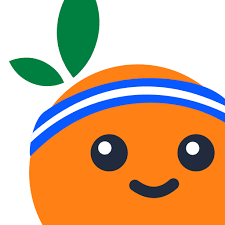
11. Fooducate
Fooducate is a food tracking app that emphasizes food quality alongside calorie counting, using a database of over 300,000 products. Users log meals via barcode scanning or manual entry, and the app assigns letter grades (A to D) based on nutritional value, highlighting factors like added sugars or sodium. The free version tracks basics, while a premium subscription adds personalized diet tips and advanced nutrient tracking.
The app offers health insights and tips based on logged foods, aiming to educate users about their choices rather than just tallying numbers. It syncs with Apple Health for activity data but lacks extensive fitness device support. While its grading system is unique, it can oversimplify complex foods, and the database may miss some niche items.
Key Highlights:
- Tracks calories with a 300,000-product database.
- Barcode scanner and food grading for quality insights.
- Provides health tips based on logged meals.
- Syncs with Apple Health for basic activity tracking.
- Free version available.
Who It’s For:
- People who care about food quality beyond just calories.
- Those who want educational feedback on their diet.
- Users who prefer barcode scanning for packaged goods.
- Anyone seeking a straightforward tool with a learning angle.
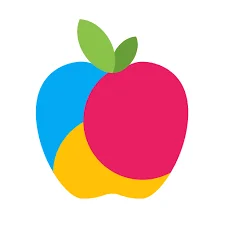
12. YAZIO
YAZIO is a food tracking app that supports calorie counting and intermittent fasting, with a database of over 2 million foods. Users can log meals manually, scan barcodes, or create recipes, and the app tracks calories, macronutrients, and exercise. It syncs with devices like Fitbit and Apple Health, offering a free version with core features and a Pro version for fasting plans and detailed analytics.
The app lets users set goals for weight loss or gain and includes a fasting timer for styles like 16:8 or 5:2, alongside a recipe library for meal ideas. Its interface is sleek, but the free version limits nutrient tracking, and some food entries may lack precision due to user contributions. It’s versatile for those blending fasting with diet monitoring.
Key Highlights:
- Tracks calories and macros with a 2 million-food database.
- Barcode scanner and recipe creation for logging.
- Supports intermittent fasting with customizable timers.
- Syncs with fitness devices for activity data.
- Free version available.
Who It’s For:
- People combining calorie tracking with fasting routines.
- Those who want recipe ideas and a modern interface.
- Users with fitness devices needing integrated tracking.
- Anyone open to upgrading for full nutrient and fasting tools.
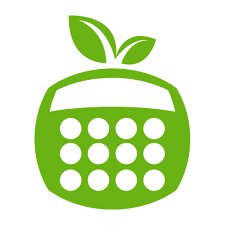
13. Nutritionix Track
Nutritionix Track is a food tracking app built on a massive database of over 900,000 foods, including restaurant and grocery items. Users log meals manually, via barcode scanning, or with voice commands, tracking calories, macronutrients, and some micronutrients. It syncs with Apple Health and Fitbit, with a free version offering robust features and a Pro option for sharing logs with professionals.
The app’s strength lies in its detailed database, curated by nutritionists, ensuring high accuracy for common foods. It provides a clean interface with progress charts, though it lacks extensive recipe tools or community features. Voice logging is a standout, but the app’s focus remains on data precision over lifestyle guidance.
Key Highlights:
- Tracks calories and nutrients with a 900,000-food database.
- Barcode scanning and voice logging for ease of use.
- High accuracy from a nutritionist-curated database.
- Syncs with Apple Health and Fitbit for activity.
- Free version covers most needs.
Who It’s For:
- People who prioritize accurate food data over extras.
- Those who like voice logging for quick entries.
- Users with fitness devices wanting precise tracking.
- Anyone sharing diet info with a coach or doctor.

14. MacroFactor
MacroFactor is a food tracking app designed for precise macronutrient tracking, with a verified database of over 1 million foods. Users log meals manually, scan barcodes, or use label scanning to capture detailed nutrition, and the app adjusts calorie and macro targets weekly based on progress. It syncs with Apple Health and Google Fit, offering a 7-day free trial.
The app calculates energy expenditure from logged data and weight trends, providing charts to monitor goals like weight loss or muscle gain. It’s ad-free and privacy-focused, but its complexity and cost may deter casual users. The database is accurate, though less extensive for niche regional foods outside supported countries.
Key Highlights:
- Tracks macros and calories with a 1 million-food database.
- Barcode and label scanning for precise logging.
- Weekly adjustments to targets based on data.
- Syncs with fitness apps for activity monitoring.
Who It’s For:
- People focused on hitting specific macro goals.
- Those who want data-driven diet adjustments.
- Users comfortable with a learning curve and cost.
- Fitness enthusiasts syncing with health apps.
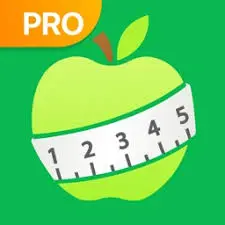
15. MyNetDiary
MyNetDiary is a food tracking app with a database of over 1.7 million verified foods, designed for easy calorie and nutrient logging. Users can enter meals manually, scan barcodes, or use an AI meal scanner, with exercise tracking synced to devices like Fitbit and Apple Health. The free version offers extensive features, while a premium subscription adds diet plans and micronutrient tracking.
The app provides personalized calorie budgets based on goals, with a dashboard showing daily macros and progress charts. Its AI scanner is innovative but may misjudge complex dishes, and the verified database ensures reliability over user-submitted alternatives. It’s a flexible tool for various dietary needs.
Key Highlights:
- Tracks calories and nutrients with a 1.7 million-food database.
- Barcode and AI meal scanning for quick logging.
- Verified food data for high accuracy.
- Syncs with fitness devices for exercise tracking.
- Free version robust.
Who It’s For:
- People who want a reliable, all-purpose tracker.
- Those who like tech features like AI scanning.
- Users with fitness devices needing integration.
- Anyone seeking detailed data without a steep cost.
Conclusion
Finding the perfect food tracker app is all about what works for you – there’s no single winner that fits everyone. Whether you’re just watching calories, diving deep into nutrients, or trying to plan meals without the stress, there’s an option out there that’ll match your vibe. Some apps keep it simple with big food libraries, while others go hard on details like vitamins or macros. You’ve also got choices that blend in recipe organizing or let you snap a pic and call it a day.
The cool thing is most of these let you try them out for free, so you can mess around and see what feels right. Some might seem too basic, others a bit much with all the numbers, but they’re all built to help you get a handle on what you’re eating. Give a few a spin, stick with what feels good, and you’ll be set to tackle your goals – whatever they are.
